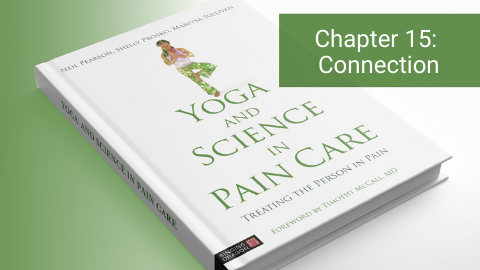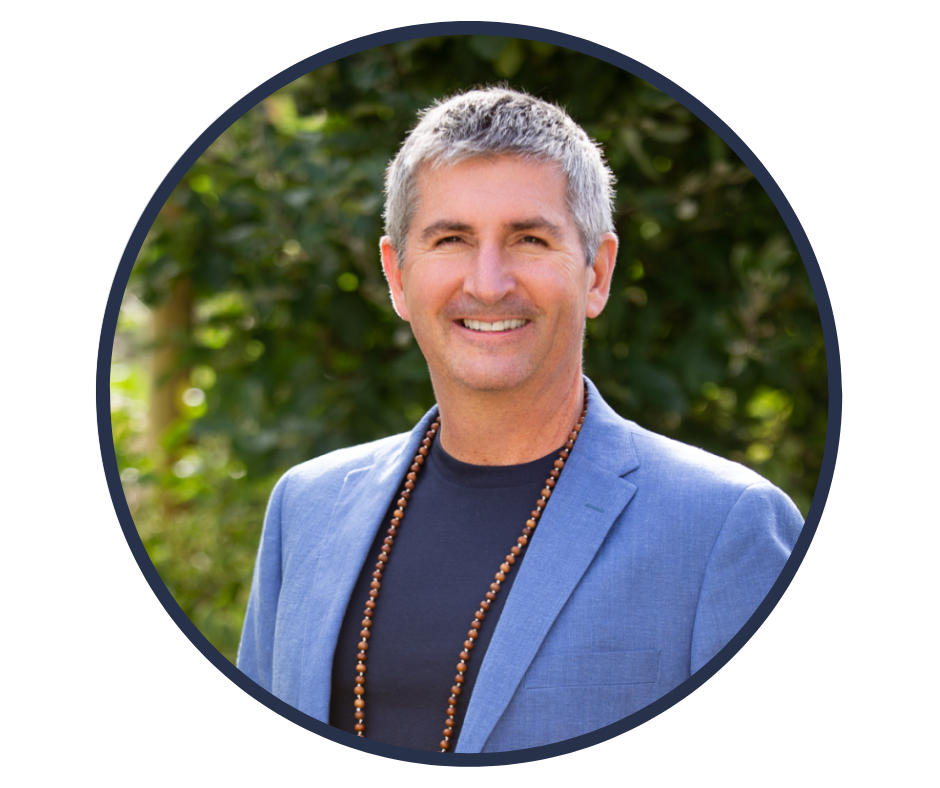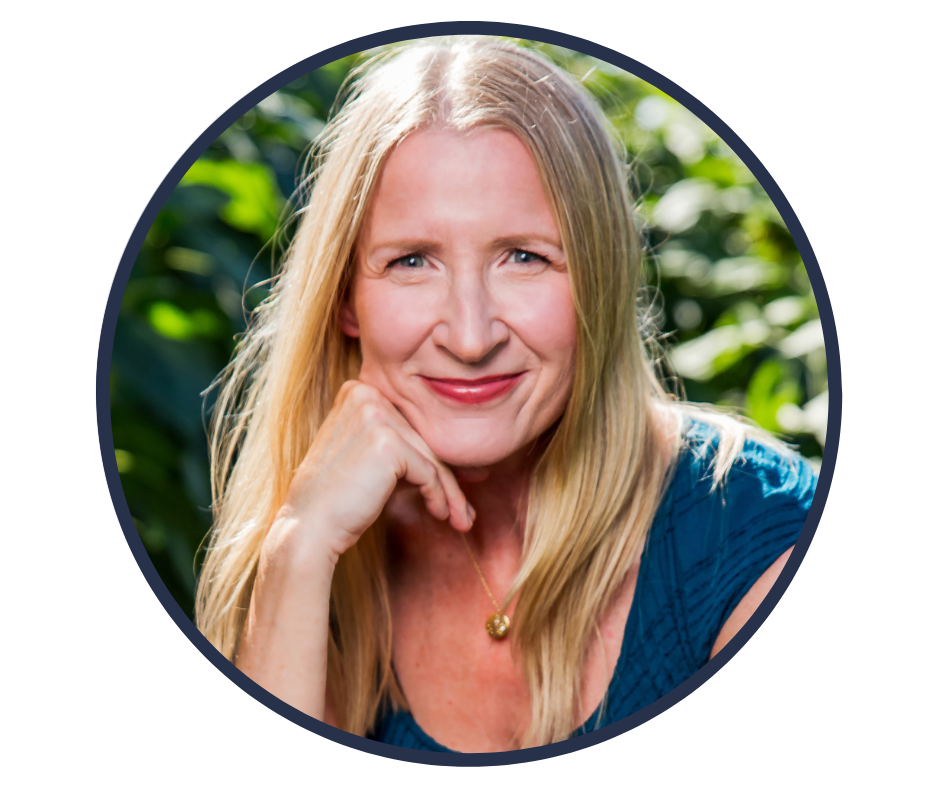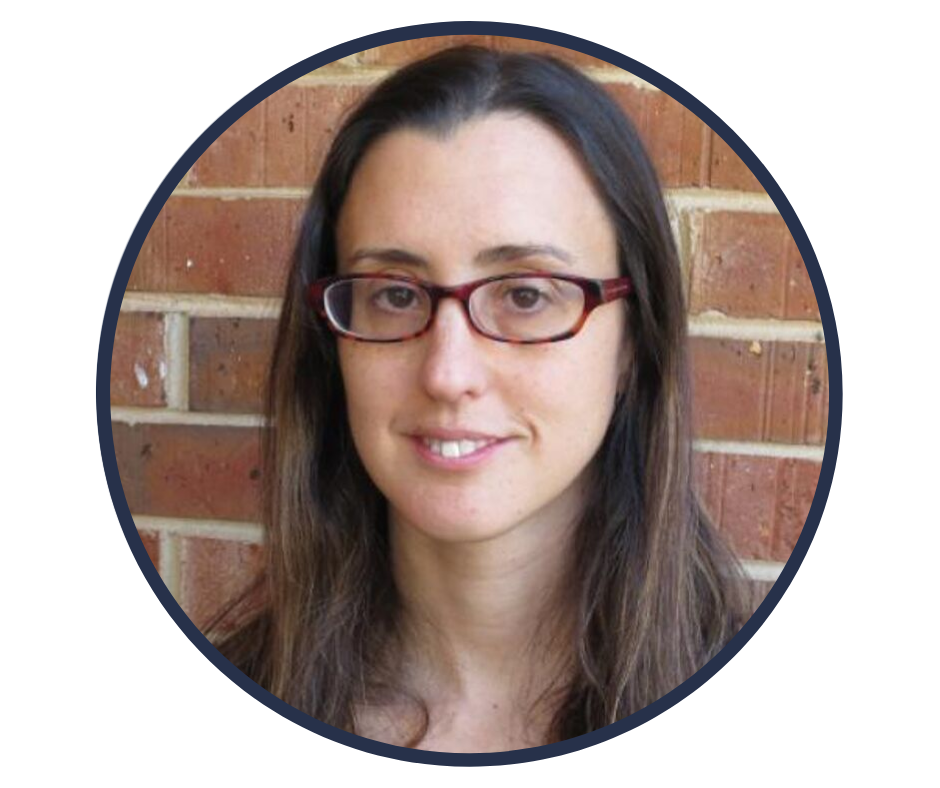Yoga and Science in Pain Care: Connection, Meaningful Relationship and Purpose in Life - Social and Existential Concerns in Pain Care

Yoga and Science in Pain Care: Connection, Meaningful Relationship and Purpose in Life - Social and Existential Concerns in Pain Care
1 hour 30 minutes
Overview of Yoga and Science in Pain Care Chapter 15: Connection, Meaningful Relationship, and Purpose in Life - Social and Existential Concerns in Pain Care
Social and spiritual aspects of pain care are often poorly understood in both their importance and application to client/patient care.
Spiritual well-being includes themes of aligning with one’s core values, meaning, and purpose, and connectedness extending from the personal to social relationships, to something more abstract or transcendent.
The philosophy of eudaimonia provides a secular perspective on these themes of spiritual well-being. Eudaimonia looks at what it means to flourish, to connect to one’s highest purpose, and live a meaningful life.
Eudaimonic well-being has been used as a concept in research to discuss a steadfast contentment that comes from living in alignment with one’s values, self-actualization, authenticity, and having a sense of purpose and meaning.
Research supports the many benefits of spiritual and eudaimonic well-being for pain care.
Foundational to yoga philosophy and practice are these themes of spiritual and eudaimonic well-being including that of connectedness to one’s essential nature, to others, aligning with one’s values, and a concept of purpose that supports one’s flourishing in a way that supports those around them.
These concepts of connection, meaning and purpose, and values will be discussed through the perspectives of spiritual well-being, eudaimonic well-being and yoga philosophy and practice.
An evidence-informed discussion will also help to facilitate the application of these ideas in a patient/client centered manner for the benefit of a biopsychosocial spiritual well-being for pain care
Learning Objectives for Chapter 15:
- Examine the definition and importance of the spiritual domain of health for pain care from an evidence-informed perspective
- Reflect on the concept of eudaimonic well-being as a secular perspective to spiritual well-being and its importance to pain care from an evidence-informed perspective
- Examine yoga philosophies and practices that align with spiritual and eudaimonic well-being
- Apply the themes of spiritual and eudaimonic well-being to specific yoga practices for pain care from a patient/client centered perspective
What you will learn can be effectively applied via virtual and in-person consults.
This webinar is apart of a larger webinar series. You can choose to register for individual sessions or you can register for the entire series at a discount. You will be presented with these two options below.
Overview of the Entire 15-Part Yoga and Science in Pain Care Book Club Series:
Are you looking for ways to better help people in pain? If you are, you’re not alone. It is estimated that over 1.5 billion people worldwide are affected by chronic pain. That’s 20.5% of the world population that is suffering and needs your help.
Join Neil Pearson, Shelly Prosko and Marlysa Sullivan, the co-editors of Yoga and Science in Pain Care, and 8 co-authors for the first-ever 15-part book club webinar series that will take place once per month over 15 months.
This Book Club Series is Intended For:
- Practitioners including yoga therapists and healthcare practitioners interested in integrating yoga with their persistent pain population to expand their approaches in clinical practice
- Yoga teachers interested in understanding aspects of the science behind yoga and pain
- Medical/healthcare professionals who want to better understand pain or want to integrate yoga and mind/body practices
- Mind/body contemplative practitioners/researchers/clinicians who want to better understand the science around pain and how yoga as a mind/body practice works with people in pain
- Yoga practitioners or integrative health consumers who want an in-depth read with practical knowledge in this field.
- Yoga therapist programs and medical university/college programs that require online course study in pain care
- Schools that have online mind/body programs as stand-alone modules or as part of medical programs and other mind-body institutions.
- People suffering from pain, particularly those keen about learning some practices to help with pain self-care and who want to learn more about the value of integrating pain science and yoga
We also hope that this series will help bring together yoga therapists and health professionals. There is value in blending science and yoga therapy in pain care – for the person in pain, for the health professional, and for the yoga professional.
Learning Objectives for the Yoga and Science in Pain Care Series:
- Describe the complexity of pain including the lived experience of pain and the science surrounding pain.
- Learn how yoga philosophy and practices can be used as an effective and evidence-informed intervention and provide a biopsychosocial-spiritual framework in pain care.
- Practice, experience and examine the application of yoga principles and practices in pain care that demonstrate addressing all aspects of the person in pain and the complex components of pain. Examples of case studies will be provided.
Is the Course Eligible For CEU's?
The answer is dependent on your profession and geographic location of practice. For Canadian Physiotherapists, this webinar series counts towards your learning hours and professional portfolio.
For other professions and jurisdictions, please submit the webinar and course descriptions and objectives we have provided to your professional association to review.
For Physical Therapists in the U.S., The Federation of State Boards of Physical Therapy (FSBPT) Continuing Competency Team has announced that it is re-evaluating the process of CEUs or CCUs and has discontinued the aPTitude system and ProCert program that we would have used to submit for CEUs/CCUs for this course. Notification from the FSBPT can be read here. This Forum article discusses the future focus of the FSBPT continuing competency initiative.
This webinar series may qualify toward learning hours but we cannot guarantee this.
Certificate of Completion:
Following each live webinar session, you will be provided with a link where you can generate a certificate of completion (including learning hours and course information) as well as lifetime access to the recording + resources.
Important Notes:
All webinars will be recorded and made available on Embodia Academy. If you purchase the webinar bundle, you will be provided with complimentary access to all recordings and all resources provided during the live sessions.
Questions? Reach out to us at support@embodiaapp.com
WARNING: Space is limited for each webinar. Make sure to reserve your seat and choose the full series to join each session. Register below!
NOTE: You must be signed in to Embodia in order to register. Creating an account on Embodia is free.
The instructors

PT, MSc(RHBS), BA-BPHE, C-IAYT, ERYT500
Neil is a physical therapist, yoga therapist, author, researcher, Clinical Associate Professor at the University of British Columbia, faculty in three IAYT-accredited yoga therapy programs, board member for the International Association of Yoga Therapists and pain care advocate. He conducts research into the effects of yoga on veterans with chronic pain and people with osteoarthritis. Neil is the recipient of awards honouring his work in pain care, patient education and physiotherapy by Queen’s University, the Canadian Pain Society and both provincial and national physiotherapy associations, including the Canadian 2021 Medal of Distinction.
Neil is a consultant to Partners in Canadian Veterans Rehabilitation Services, and to Lifemark’s 300+ clinics in Canada. Neil is a past board member for Pain BC, Canada’s premier non-profit transforming the way pain is understood and treated. He co-authored – Yoga and Science in Pain Care 2019, authored the patient education ebook, Understand Pain Live Well Again in 2008, and is lead contributor to many free patient resources offer by Pain BC.
For more information and course offerings, see www.paincareaware.com

PT, C-IAYT, PCAYT
Shelly has been helping people recover and flourish since 1998 as a physiotherapist, yoga therapist, educator, author and pioneer of PhysioYoga, blending evidence-informed body-mind-breath-spirit-heart centered practices and principles, such as yoga, into physiotherapy with a focus on chronic pain, pelvic health, compassion in healthcare and professional burnout. She is on faculty at several therapy programs, presents at medical conferences globally, contributes to academic research and writing, provides classes, courses and resources for the general population, and offers continuing education courses and mentorship for professionals.
She considers herself a lifelong student and emphasizes the immense value gained from clinical experience and learning from those she serves, the professionals she teaches, and the colleagues with which she collaborates.
Shelly is the co-editor/author of the book Yoga and Science in Pain Care: Treating the Person in Pain and has authored numerous book chapters in a variety of rehabilitation textbooks.
She maintains a clinical practice in Sylvan Lake, Alberta and believes compassion (including self-compassion), meaningful connections, spending time in nature and sharing joy are powerful contributors to rehab and well-being.
Visit www.PhysioYoga.ca to learn more.

MPT, C-IAYT
Marlysa is a physiotherapist and yoga therapist with over 15 years of experience working with people suffering with chronic pain conditions. She is an Assistant Professor in Yoga Therapy and Integrative Health Sciences at Maryland University of Integrative Health and holds an adjunct position at Emory University, where she teaches the integration of yoga and mindfulness into physical therapy practice in the DPT program. She is also the author of Understanding Yoga Therapy: Applied Philosophy and Science for Well-being and co-editor of Yoga and Science in Pain Care: Treating the Person in Pain as well as several peer-reviewed articles.
Marlysa has been involved in the professionalization of the field of yoga therapy through the educational standards committee of IAYT, which helped to define the competencies for the field, and in characterizing the yoga therapy workforce through research. Her research interests focus on defining the framework and explanatory model for yoga therapy based on philosophical and neurophysiological perspectives.